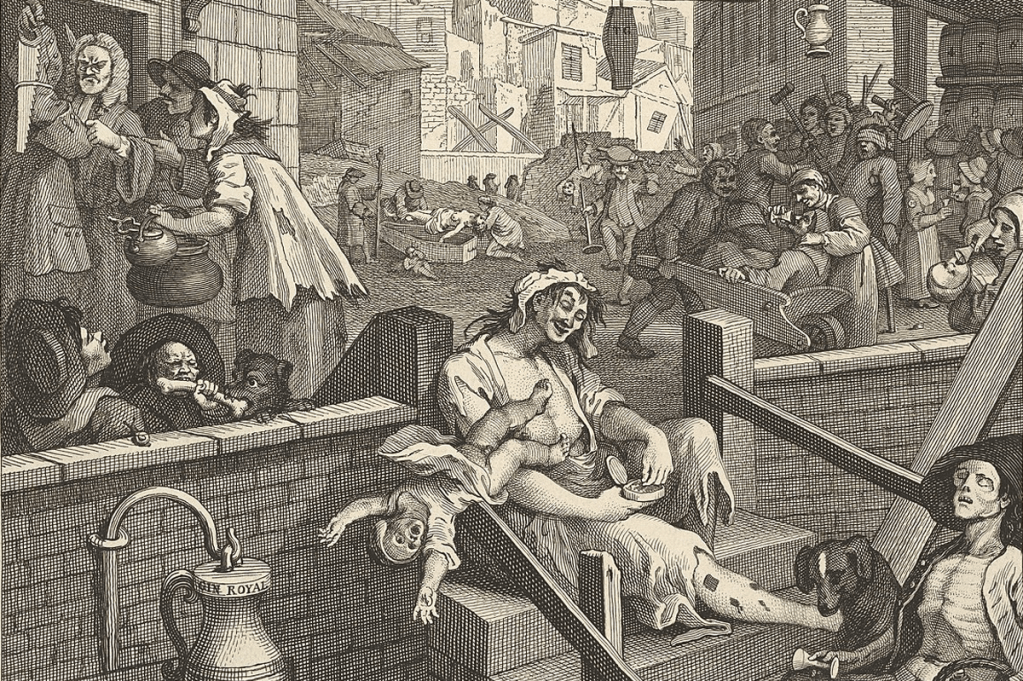It’s Lent again, and you know what that means: time for Christians to give up their favorite indulgences for 40 days in the spirit of penance and/or the hope of weight loss. I confess that in pandemic times, bagels and brownies have taken a backseat to booze as my preferred guilty pleasure. So I’m doing what I’ve got to do, for my soul if not my waistline, complexion, or sleep cycles: I’ve given up drinking for Lent.
The uptick in my consumption over the past year is part of a broad and alarming trend. A study published last week in Psychiatry Research tracked respondents’ drinking over the first six months of the pandemic and found that ‘harmful alcohol use increased notably’. This surprises no one who remembers last spring’s huge spikes in at-home alcohol sales. The New York Post, LA Times, and NBC News have all recently covered the emerging data about Americans’ accelerating alcohol abuse. Even Dry January, the annual cleansing of our national livers, may have been less successful this year.
In this context, nothing about my intake is unusual. Say, a glass of wine or two (or three) at the close of business — how else to symbolize the end of a virtual workday? Furthermore, I live above a bar that it’s simply my duty as a neighbor to patronize. It may seem a little odd that my coat closet currently has 19 bottles of wine lined up on the floor, but you have to order a whole case to get free shipping! In a moment of concern, I took the Alcohol Use Disorders Identification Test (AUDIT) and got a score of 9 on a scale of 40, which would seem pretty good, if the description didn’t include terms like ‘risky’ and ‘hazardous’ and ‘book an appointment with your physician’. With Ash Wednesday right around the corner, the timing was right for a dry spell.
Some signs indicate that other drinkers are beginning to address the problem in their own ways. For example, when supermodel and Twitter personality Chrissy Teigen announced her sobriety earlier this year, sales of the book she credits with her decision, Quit Like A Woman by Holly Whitaker, soared.
I read Quit Like A Woman to prepare for my own dip into sobriety. Whitaker views skyrocketing rates of alcohol abuse among women as the inevitable side-effect of a patriarchal culture that demands female perfection. Since I’m no one’s idea of a perfectionist, this doesn’t seem to quite describe my problem. Whitaker goes on to gleefully skewer the urban millennial women who eat organic and raw and clean, until the dreaded toxins come in a martini glass. Why obsess over whether your mascara is organic when you’re drinking artisanal rocket fuel? Good point, but I’m willing to bet my annual Cheez-It intake is several tons higher than that of Whitaker’s target audience and I don’t even know if my water bottle is BPA-free, so the toxin-based critique doesn’t resonate with me, either.
Another popular book about sobriety, The Alcohol Experiment by Annie Grace, is more my speed. Annie is a former executive whose approach is gentler than Whitaker’s. Rather than echoing Whitaker’s misplaced feminist rage, Grace frames sobriety as an investigation: aren’t you curious what it’s like to be sober? Actually, after nearly a year of daily doses of booze to disrupt the tedium of life under COVID: yeah, kind of.
I’m only a week into my Lenten observance (which in full disclosure includes a few special-occasion carve-outs). It’s going well in the sense that it’s appropriately penitential. I discovered a new game to pass the time I spend not-drinking the closet wine, called ‘Is it COVID or is it mild alcohol withdrawal?’ I’ve been terribly irritable toward my coworkers, and my eyeballs hurt for some reason. Sean the UPS guy may be wondering why we’re seeing so much less of each other these days, now that he doesn’t need an adult signature for wine deliveries. Nonetheless, my headaches are subsiding and I find myself grateful for this moment to take stock of my life and to prepare for better times ahead. The end of COVID is coming, yes, but first, we’ll celebrate the original conquest of death and despair: Easter.

























